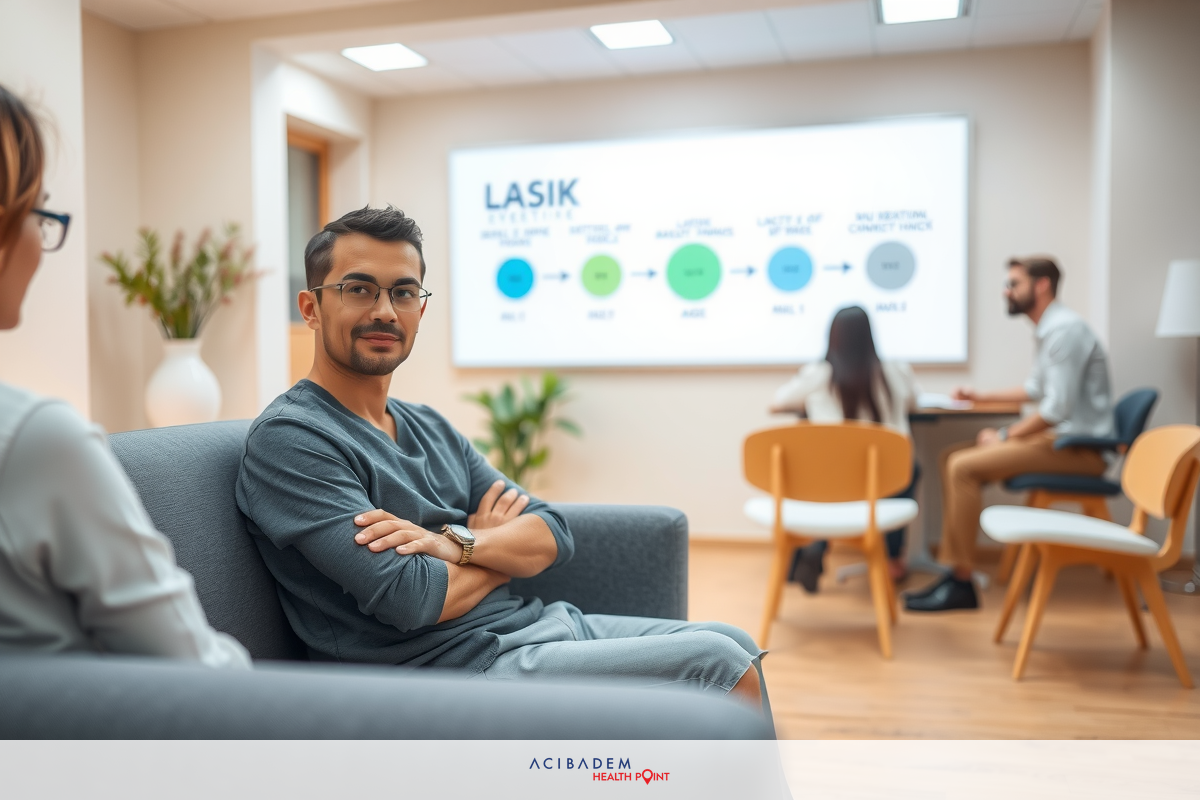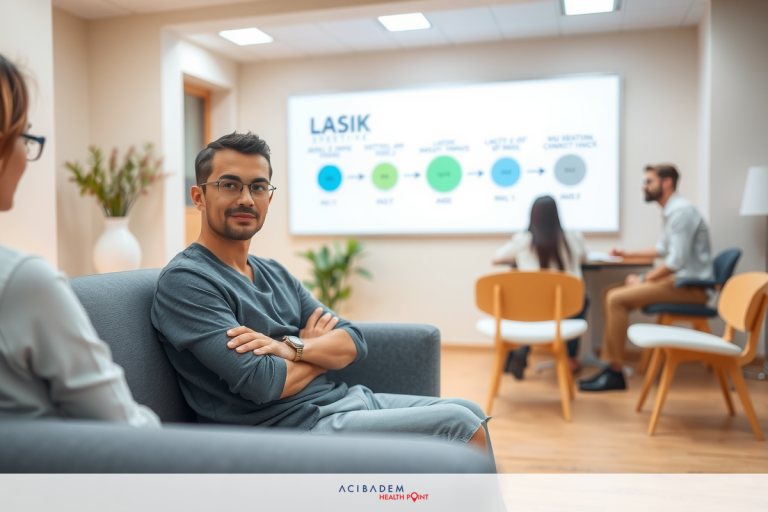When is it Too Late to Get LASIK Eye Surgery?
When is it Too Late to Get LASIK Eye Surgery? LASIK eye surgery has specific timing and eligibility factors. Age plays a pivotal role in determining the suitability of an individual for this operation. As there’s no definitive ‘too late’ cut-off point, understanding these criteria becomes crucial.
Certain health conditions affecting the eyes can also influence one’s candidacy for LASIK. It becomes essential to stay informed about such potential hindrances before deciding on this path. Consultation with an eye doctor helps evaluate if you meet the requirements aptly aligning your needs and safety.
Every case is unique when it comes to medical procedures like LASIK. Proper guidance from healthcare professionals ensures that you make well-informed decisions concerning your ocular health.
When is it Too Late to Get LASIK Eye Surgery? Age Requirements
LASIK eye surgery is an impressive procedure, transforming countless lives by improving vision. However, timing and eligibility are key factors to consider before booking your appointment. When discussing age requirements, a common query is – when does it become too late for LASIK?
Patients typically must be at least 18 years old to qualify for LASIK eye surgery; this ensures that their eyes have fully matured and prescription changes have stabilized. Younger patients often find their prescriptions fluctuating wildly as they grow, rendering LASIK ineffective if performed too early.
In contrast to the minimum age limit, there’s no universally recognized upper age cut-off for undergoing LASIK. Several individuals in their 40s or even 50s successfully experience the benefits of this procedure. Yet again, ‘late’ becomes a relative term in this context.
Though no formal maximum age requirement exists, older candidates should note certain considerations that might affect their eligibility for the procedure. For instance, with advancing age comes an increased risk of cataracts—a condition which can complicate LASIK outcomes.
On top of potential health considerations linked with aging eyes—like dryness or reduced healing capabilities—it’s also worth noting that older patients may need reading glasses post-LASIK due to presbyopia (a natural aging process affecting near vision). So while technically never ‘too late’, some nuances come into play as we advance in years.
Understanding these age-related criteria forms a vital part of determining suitability for LASIK eye surgery. It’s not simply about chronological years but rather about overall ocular health status and realistic expectations from the procedure outcome.
Eye Health Conditions
LASIK eye surgery is a remarkable procedure designed to correct vision imperfections. However, the eligibility for this operation isn’t solely based on age or timing—it also heavily relies on the overall health of your eyes. Certain conditions can impact your suitability as a candidate for LASIK, and it’s crucial to understand these before making any decisions.
Among these health-related variables, dry eye syndrome stands out prominently. This condition might worsen following LASIK surgery due to reduced tear production—a side effect that individuals already suffering from dry eyes may find challenging to manage post-procedure. Another common eye health concern influencing LASIK eligibility is glaucoma—increased pressure within the eyeball—which can lead to damaged optic nerves and vision loss if untreated.

Corneal diseases represent another critical area of consideration given that LASIK involves reshaping the cornea—the clear front surface of your eyes—to improve vision. Conditions such as keratoconus (a disease causing thinning and bulging of the cornea) or severe scarring could potentially disqualify someone from being a suitable candidate for this procedure.
Eye infections or injuries present additional hurdles in qualifying for LASIK as they might affect healing after surgery. Certain systemic diseases like diabetes or autoimmune disorders could pose risks due to potential complications with wound healing and increased susceptibility to infections.
Understanding how various eye health conditions interact with LASIK eligibility forms an essential part of decision-making around undergoing this procedure—it’s about more than simply correcting visual impairment; it’s about ensuring safe outcomes aligned with individual health profiles.
Consulting Your Eye Doctor
The journey to improving your vision through LASIK eye surgery is a significant decision, one that requires comprehensive understanding and careful consideration. While researching about the procedure, its timing, eligibility criteria can provide valuable insights—nothing beats a personalized consultation with your eye doctor.
Your ophthalmologist brings years of medical training and experience to the table—they are equipped to thoroughly evaluate your unique situation. They will assess factors like age, overall ocular health conditions but also delve deeper into aspects such as corneal thickness or pupil size—elements crucial in determining if you’re an ideal candidate for LASIK.
A detailed eye examination forms part of this process—it’s not just about checking visual acuity (sharpness) but involves assessing internal and external structures of the eyes using specialized equipment. For instance, corneal topography—a test mapping out the curvature of your cornea—is typically conducted during preLASIK evaluation.
Moreover, discussing lifestyle needs is another integral part of this conversation with your doctor. If you participate in contact sports or have occupations involving heavy physical activity which could risk potential trauma to operated eyes post-surgery—you may need additional guidance on managing these scenarios effectively after LASIK.
Consulting with an eye specialist also provides room for discussing possible risks and complications associated with the procedure—as well as setting realistic expectations concerning outcomes. It’s important to remember that while most patients report improved vision following LASIK—not everyone ends up completely glasses-free; some might still require reading glasses due to presbyopia especially those advancing in age.
The role played by a doctor’s consultation extends beyond merely establishing suitability for undergoing LASIK—it fosters informed decisions grounded on personal health circumstances and lifestyle needs—ensuring patient safety remains paramount throughout their vision correction journey.
Frequently Asked Questions
What is the ideal age to undergo LASIK eye surgery?
Though you must be at least 18 years old for LASIK, there's no strict upper age limit. However, it's crucial to note that certain aspects like overall ocular health and realistic expectations from the procedure outcome play significant roles in determining suitability.
Can I get LASIK if I have dry eyes or glaucoma?
Conditions like dry eyes and glaucoma could potentially affect your eligibility for LASIK. It's important to discuss these concerns with your eye doctor who can assess your unique situation and guide accordingly.
How does an eye doctor determine if I'm a good candidate for LASIK?
Your ophthalmologist conducts a thorough examination—checking visual acuity, assessing internal & external structures of the eyes using specialized equipment. They also consider factors such as lifestyle needs along with potential risks and complications associated with the procedure.
Will I still need glasses after getting LASIK?
While most patients report improved vision following LASIK—not everyone ends up completely glasses-free; some might still require reading glasses due to presbyopia especially those advancing in age. Discussing this aspect during consultation will help set realistic post-procedure expectations.








